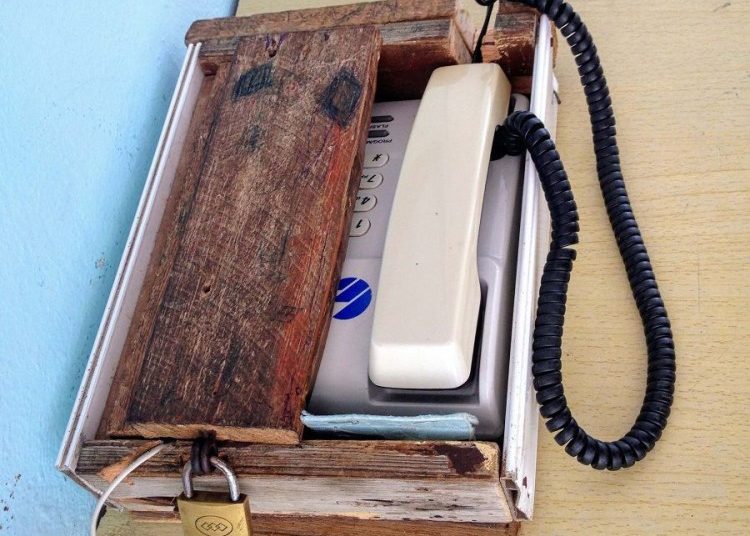A new legal regulation of the Cuban Ministry of Communications prevents new owners of telephone landlines from moving that service if they change domicile.
Resolution 176, published in the Gaceta Oficial on November 11 and which establishes the general principles to be taken into account by the Cuban Telecommunications Enterprise, S.A. (ETECSA) when preparing basic telephone contracts, links this service only to the legal domicile of the contract holder, the official media reported this Friday.
The people who contract the telephone service as of the entry into force of the new resolution, in January 2020, will not be able to move their landline with them in case they change homes, according to the regulation.
“If the user moves, the service can be transferred to any person who continues to reside in that home or can continue to own it, although the service would remain at the previous address,” explained the newspaper Granma citing Adalis Montiel, deputy director of ETECSA’s landline services department.
However, landline owners whose contracts were signed under the previous legislation do have the right to request the transfer of the service to another home, provided it is their new legal address and ETECSA has the necessary infrastructure for its installation.
#ETECSA iniciará la implementación de nueva normativa para los teléfonos fijos a partir del 8/01/2020 e irá informando en los diferentes canales de comunicación de la entidad sobre este tema. Consulte las preguntas frecuentes en https://t.co/pgE92zsztf o contáctenos por el 118 pic.twitter.com/gE4Wv9tkvL
— ETECSA (@ETECSA_Cuba) November 29, 2019
According to the new regulation, in the case of a swap, if the two holders have telephone service, both can keep it; while in the case of the transfer of ownership, this can only benefit people legally residing in the house where the telephone service is installed.
In addition, it only recognizes the transfer of ownership in cases of death, declaration of presumption of death or declaration of emigration of the holder, and will always be in favor of a person previously designated in the contract. As a condition, this person must legally reside in the home where the telephone service is installed.
If there is no designated person in the contract, the beneficiary will be the one who legally receives the right to housing.
According to Montiel, ETECSA has allocated around 60% of the resources planned for the growth of the service every year to the installation of 30,000 transfers. Of these, almost 17,000 are pending “for not having technical capabilities, thereby wasting the installed resources,” she said.
The official said that the flexibility of the regulations on housing, and the authorization of the purchase and sale of these, generated an increase in illegality and litigation associated with the telephone service, as well as the requests for the transfer of residential lines, which increased from 2 to 6%.
The new regulation requires the state telecommunications company to guarantee the recognition and application of the principle of respect for the privacy of users’ personal data and the inviolability of their communications except in the cases provided for in current legislation.
Cuba legalizes electronic surveillance without a court order
The resolution also requires that the technical interruptions of the service be resolved within a maximum period of 72 hours, after the user reports it or ETECSA detects it, as well as a compensation procedure when the established deadline is not met.
Likewise, it ensures the right of users to receive information on billing at the agreed periodicity, which includes the amount consumed of the contracted services, broken down by type and in correspondence with the technical means.
According to the regulation, the Ministry of Communications establishes the general principles to be taken into account when drawing up the contracts for the services, so that its clauses are not abusive and do not violate the rights of consumers.
There are currently 1.2 million registered owners of telephone landlines on the island.











This has been normal practice in the Uk for decades;the telephone line is for the house, not whoever is living there at that time. A good move for Cuba.. yet this biased report seems to make it out as a problem.